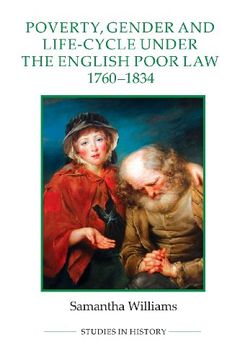Share
Poverty, Gender and Life-Cycle Under the English Poor Law, 1760-1834 (Royal Historical Society Studies in History new Series)
Samantha Williams
(Author)
·
Boydell Press
· Paperback
Poverty, Gender and Life-Cycle Under the English Poor Law, 1760-1834 (Royal Historical Society Studies in History new Series) - Williams, Samantha
Choose the list to add your product or create one New List
✓ Product added successfully to the Wishlist.
Go to My Wishlists
Origin: U.S.A.
(Import costs included in the price)
It will be shipped from our warehouse between
Thursday, July 18 and
Thursday, July 25.
You will receive it anywhere in United Kingdom between 1 and 3 business days after shipment.
Synopsis "Poverty, Gender and Life-Cycle Under the English Poor Law, 1760-1834 (Royal Historical Society Studies in History new Series)"
Examination of welfare during the last years of the Poor Law, bringing out the impact of poverty on particular sections of society - the lone mother and the elderly. Social welfare, increasingly extensive during the seventeenth and eighteenth centuries, was by the first third of the nineteenth under considerable, and growing, pressure, during a "crisis" period when levels of poverty soared. This book examines the poor and their families during these final decades of the old Poor Law. It takes as a case study the lived experience of poor families in two Bedfordshire communities, Campton and Shefford, and contrasts it with the perspectives of other participants in parish politics, from the magistracy to the vestry, and from overseers to village ratepayers. It explores the problem of rising unemployment, the provision of parish make-work schemes, charitable provision and the wider makeshift economy, together with the attitudes of the ratepayers. That gender and life-cycle were crucial features of poverty is demonstrated: the lone mother and her dependent children and the elderly dominated the relief rolls. Poor relief might have been relatively generous but it was not pervasive - child allowances, in particular, were restricted in duration and value - and it by no means approximated to the income of other labouring families. Poor families must either have had access to additional resources, or led meagre lives. Samantha Williams is a university lecturer in local and regional history at the Institute of ContinuingEducation, Cambridge, and a Bye-Fellow in History, Girton College, Cambridge.

